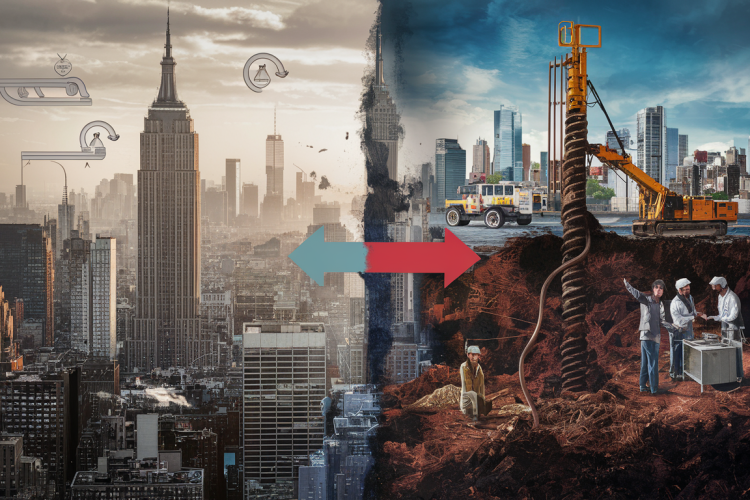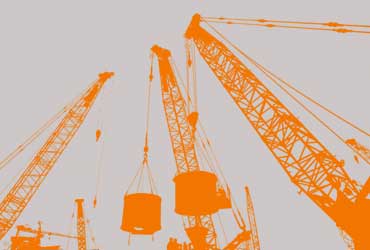
Unraveling Geotechnology: 7 Vital Insights into Soil Boring Services in NYC
Geotechnology plays a pivotal role in shaping urban landscapes, especially in bustling metropolises like New York City (NYC). In this article, we embark on a journey to understand the significance of geotechnology and delve into the intricacies of soil boring services offered in NYC. Let’s uncover how these services contribute to the development and maintenance of the city’s infrastructure.
Understanding Geotechnology
Geotechnology encompasses the study and application of geological principles to engineering practices. In NYC, it’s indispensable to assess soil conditions, geological hazards, and environmental impacts before initiating construction projects. Geotechnology ensures the structural integrity and longevity of buildings, roads, and other infrastructure amidst the city’s dynamic environment.
What is Geotechnology?
Geotechnology integrates geology, engineering, and environmental science to analyze and interpret subsurface conditions. It involves geological mapping, soil analysis, and geophysical surveys to characterize the composition and stability of the earth’s crust. In NYC, where land is scarce and valuable, geotechnology guides sustainable development and mitigates geological risks.
Applications in NYC
From skyscrapers to subway tunnels, geotechnology influences every aspect of urban development in NYC. It aids in site selection, foundation design, and slope stability analysis, ensuring infrastructure resilience against natural disasters and geological phenomena. Geotechnology also supports environmental conservation efforts by assessing contamination risks and groundwater pollution.
Soil Boring Services Explained
Soil boring is a fundamental geotechnical investigation method used to collect subsurface soil samples for analysis. In NYC, specialized drilling rigs equipped with augers or percussion tools are deployed to extract soil cores from varying depths. These samples undergo laboratory testing to determine soil properties, including composition, density, and moisture content.
Process of Soil Boring
The soil boring process begins with site preparation and equipment setup. Once the drilling rig is positioned, the drilling operation commences, with continuous sampling and logging of soil layers. Depth-specific samples are retrieved using hollow-stem augers or rotary drilling techniques. Geotechnical engineers analyze these samples to assess soil strength, bearing capacity, and permeability.
Soil Boring Services in NYC: Equipment Used
State-of-the-art drilling equipment is employed for soil boring services in NYC. Hydraulic drill rigs, soil samplers, and downhole instrumentation facilitate efficient subsurface exploration. Geophysical tools like ground-penetrating radar (GPR) and seismic refraction help delineate subsurface features and detect buried utilities, enhancing project planning and risk management.
Soil Boring Benefits
Soil boring services offer invaluable insights into subsurface conditions, enabling engineers to design foundations, retaining structures, and underground utilities with precision. By identifying soil anomalies and geological hazards early in the project lifecycle, soil boring mitigates construction delays, cost overruns, and safety risks, ensuring project success and public safety.
Earthwork Design Inspection Services
Earthwork design inspection is an integral aspect of geotechnical engineering, particularly in urban environments like NYC. It involves assessing soil properties, compaction, and grading to verify compliance with design specifications and regulatory standards.
Role in Geotechnology
Earthwork design inspection ensures that excavation, embankment, and grading activities adhere to engineering plans and environmental regulations. It safeguards against soil erosion, settlement, and structural failure, preserving the integrity of infrastructure projects and minimizing environmental impact.
Importance in NYC
Earthwork design inspection is crucial for optimizing construction efficiency and minimizing land disturbance in tightly regulated, space-scarce areas like New York City. Compaction and drainage during earthmoving operations, inspectors safeguard against foundation settlement and slope instability, preserving the city’s structural assets for generations to come.
Inspection Procedures
Earthwork design inspection involves field testing, surveying, and documentation to ensure compliance with project specifications and industry standards. Qualified inspectors use specialized equipment, such as nuclear density gauges and laser levels, to accurately measure soil density and elevation changes. They also conduct visual inspections to identify potential issues and deviations from the approved plans.
Key Considerations
Several factors influence the effectiveness and scope of soil boring services and earthwork design inspection in NYC. Understanding these considerations is essential for project planning, risk management, and regulatory compliance.
Factors Influencing Soil Boring
Soil composition, groundwater levels, and project objectives are primary factors influencing soil boring operations in NYC. Complex geological formations, such as bedrock and glacial deposits, require specialized drilling techniques and equipment. Additionally, proximity to water bodies and existing infrastructure may necessitate environmental permits and mitigation measures.
Regulations and Compliance
NYC’s Department of Buildings (DOB) and Department of Environmental Protection (DEP) enforce strict regulations governing geotechnical investigations and earthwork activities. Drilling operations, soil disposal, and excavation require permits, licenses, and approvals within city limits. Compliance with zoning ordinances, environmental laws, and safety standards is paramount to avoid legal penalties and project delays.
Cost Factors
The cost of soil boring services and earthwork design inspection in NYC varies depending on project size, complexity, and site accessibility. Factors such as mobilization, equipment rental, and laboratory testing contribute to overall project expenses. However, investing in comprehensive geotechnical investigations and quality assurance measures upfront can mitigate costly rework and construction defects down the line.
FAQs
What are the primary objectives of soil boring services?
Soil boring services aim to assess subsurface soil conditions, identify geological hazards, and provide data for engineering design and construction planning.
How deep do soil borings typically penetrate?
Soil borings can penetrate depths ranging from a few feet to several hundred feet, depending on project requirements and site geology.
What are the common methods used for soil sampling?
Common soil sampling methods include auger drilling, rotary drilling, and test pits, each suited for specific soil types and exploration depths.
Why is earthwork design inspection crucial for construction projects?
NYCER design inspection ensures that site grading, soil compaction, and drainage systems meet engineering specifications, preventing structural failures and environmental






